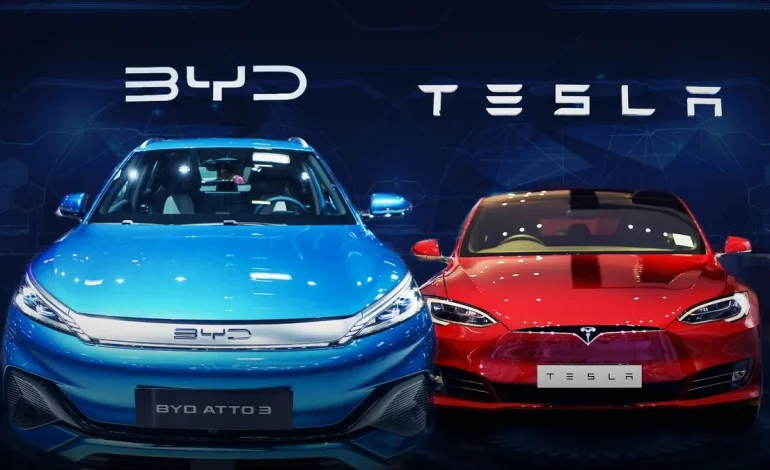China’s EV Exports Jump 38% in Q3 BYD Overtakes Tesla in Global Shipments

Policy Context:
China’s electric vehicle (EV) industry has seen a surge in exports, with BYD overtaking Tesla in global shipments for Q3 2025. Government policies promoting EV manufacturing, renewable energy integration, and export incentives have contributed significantly to this growth.
Policy measures include subsidies for EV production, tax benefits for exporters, and streamlined customs procedures for international shipments. Additionally, regulations encourage adoption of green manufacturing processes, investment in battery technology, and development of EV infrastructure to support global competitiveness.
China’s industrial policy also emphasizes technology innovation, including next-generation battery design, autonomous driving systems, and AI-enabled manufacturing. These initiatives aim to establish China as the global leader in EV technology and sustainable mobility solutions.
Market Response:
The market has reacted positively, with international demand for Chinese EVs, particularly in Europe and Southeast Asia, rising sharply. BYD’s shipments increased due to competitive pricing, advanced battery technology, and enhanced vehicle range.
Dealers and distributors report record order volumes, while logistics providers are scaling operations to meet increased export demands. Analysts suggest that China’s integrated EV strategy, combining production incentives and technological advancement, has positioned domestic manufacturers to capture significant market share.
The rise in exports has also sparked interest from investors in EV supply chains, including battery materials, AI-based production lines, and digital sales platforms. Enhanced visibility and global market penetration further strengthen confidence in China’s EV industry as a long-term growth sector.
Strategic Impact:
China’s EV export surge reinforces its strategic leadership in the global automotive market. Dominance in EV shipments enhances trade balances, creates employment opportunities, and boosts China’s influence in international technology and mobility sectors.
BYD overtaking Tesla highlights the effectiveness of China’s industrial policies, from manufacturing incentives to innovation clusters. Digital tools, AI-driven production monitoring, and programmable finance solutions, similar to RMBT, enable manufacturers to streamline operations, manage global supply chains, and ensure transparent financial tracking for cross-border trade.
The growth also contributes to global environmental goals, promoting the adoption of clean energy transportation solutions and demonstrating China’s capability in scaling sustainable mobility.
Future Outlook:
Looking ahead, China’s EV exports are projected to continue rising, driven by further adoption of battery innovations, autonomous driving features, and international trade agreements. Expansion into emerging markets, including ASEAN and Latin America, is expected to increase shipment volumes and diversify revenue streams.
Next-generation EV manufacturing facilities, powered by AI and robotics, will optimize production efficiency, reduce costs, and enhance quality control. Analysts anticipate that China’s EV industry will maintain its competitive edge globally, with BYD and other domestic manufacturers continuing to challenge established players like Tesla.
Policy support is expected to remain robust, with additional subsidies, infrastructure development, and international cooperation initiatives planned. Integration of digital trade platforms and programmable payment systems will streamline global transactions, ensuring that China’s EV industry remains technologically advanced, operationally efficient, and financially transparent.






